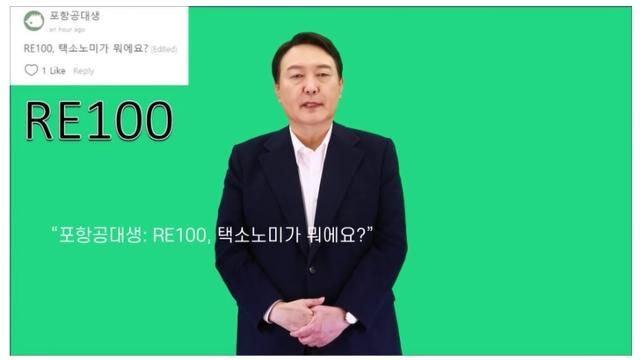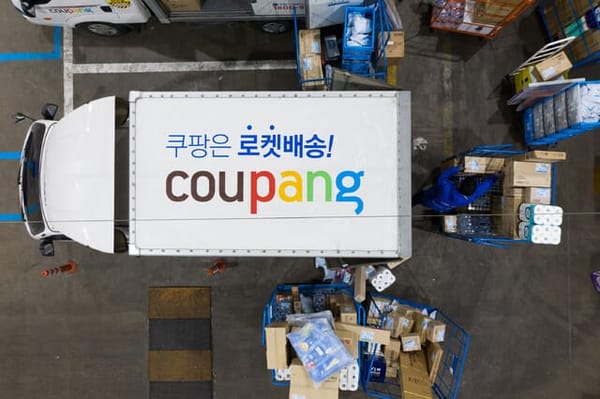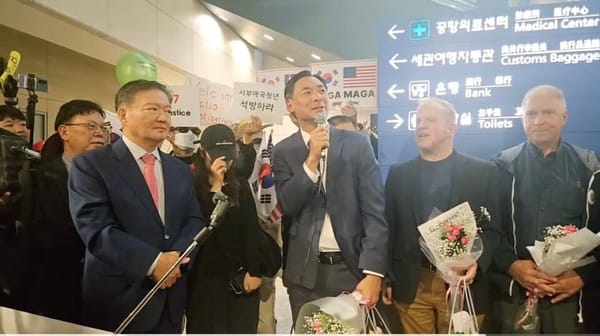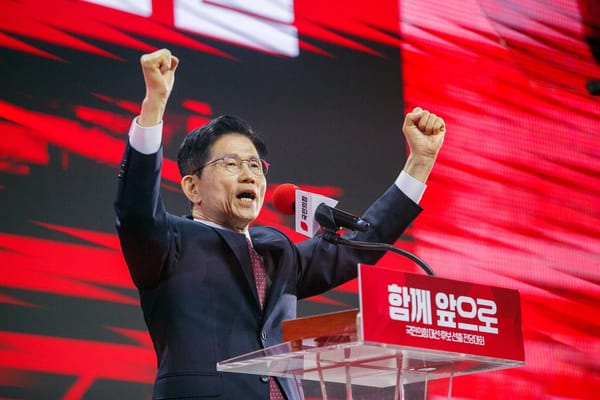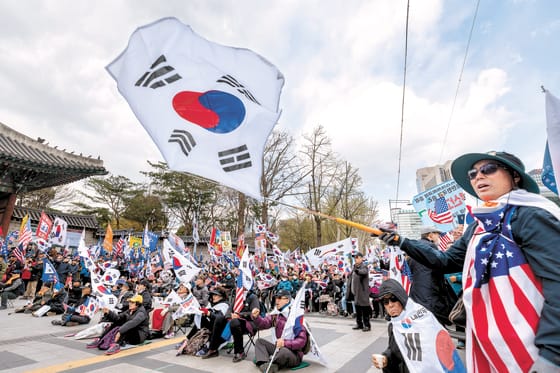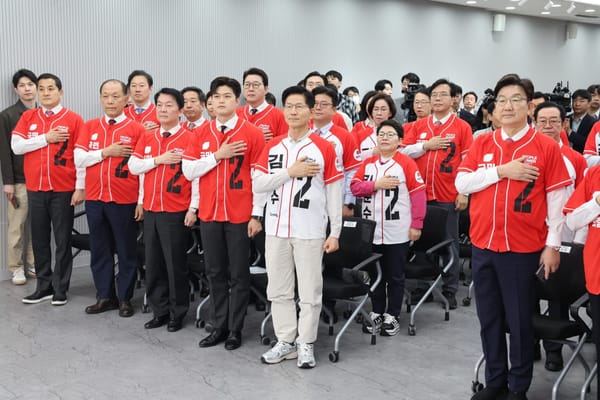Photo: Yoon Suk-yeol faces questions regarding RE100. Credit: Presidential campaign of Yoon Suk-yeol.
One of the 2022 presidential campaign’s most infamous moments came during one of the televised debates, when Democratic Party 민주당 presidential candidate Lee Jae-myung 이재명 asked his main adversary for his views on RE100, an initiative for using 100% renewable energy. Yoon Suk-yeol 윤석열 replied that he did not know what it was, and upon hearing Lee’s explanation, claimed that 100% renewable energy was impossible. When mocked for his ignorance, Yoon doubled down: “It’s ok for a presidential candidate not to know something like RE100.” (See previous coverage, “RE100: Do We REally Need to Know?”)
As it turned out, RE100 was rather important. According to a May 15 report by Korea Economic Daily 한국경제신문, South Korea’s auto parts companies are losing their contracts with automakers based in Europe, the biggest proponents of the RE100 initiative. A South Korean manufacturer of motors for electric vehicles recently lost its contract with Volvo, which had required the manufacturer to meet the RE100 standard by 2025. Other parts companies are about to lose their contracts with BMW and Mercedes-Benz, which are also imposing the same requirement on a similar timeline.
With the exception of the largest corporations, which can obtain electricity outside of Korea, it is practically impossible for South Korea corporations to satisfy the RE100 requirements in the short term, because South Korea simply does not generate enough power from renewable resources. As of 2021, only 7.5% of South Korea’s electricity was generated from renewables. Aware of the potential for RE100 requirement to act as a trade barrier, the Moon Jae-in 문재인 administration made a strong push for solar energy, tripling the number of solar plants between 2018 and 2022. But Yoon scrapped Moon’s initiative for solar power, calling it corrupt and environmentally destructive.
Yoon instead pushed for nuclear energy while attacking the Moon administration’s initiative for “Nuclear Zero.” (See previous coverage, “Conservatives’ Attack on Nuclear Zero.”) RE100, however, does not count nuclear power as a renewable resource. In order to include nuclear power - 27.4% of South Korea’s power generation - the Yoon administration is proposing an alternative standard of CF100, based on the United Nations’ definition of carbon-free energy that does include nuclear power. It would indeed be an unprecedented coup for South Korea if it could somehow unilaterally change an international standard this way.


